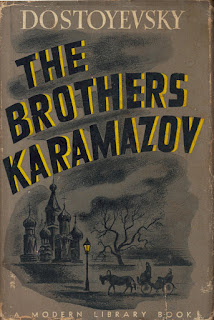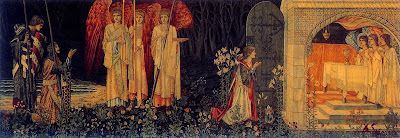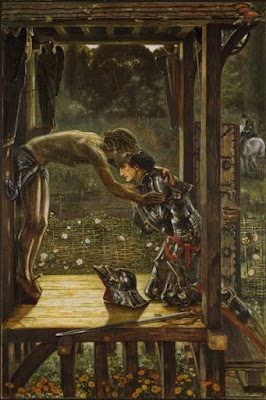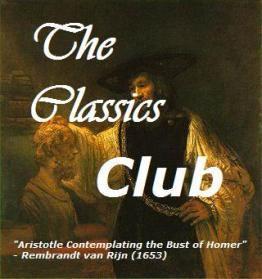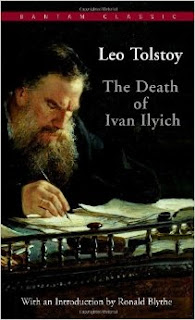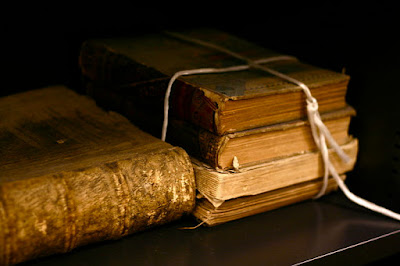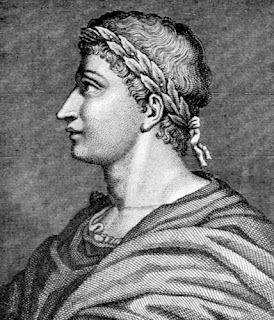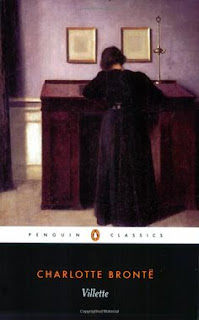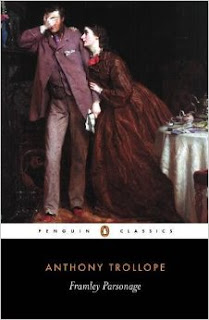November 18, 2018 has come and gone and I can’t believe that my five year anniversary date with the Classics Club has come around so quickly! It seems like only a year or so ago I was compiling my list and wondering how I was going to read so many books. So how did I do with it? Well, here’s what I accomplished ….
First of all, I went completely overboard and instead of choosing the recommended 50 books, I chose 170 books! Eh, not particularly my most wise decision, especially considering the content of some of them. Needless to say, I didn’t finish my list but, on a brighter note I did manage to read 66 of them, which is better than 50. I also had a few of them (The Histories, Paradise Lost, Metamorphoses, Hamlet and History of the Peloponnesian War come quickly to mind) where I posted by chapter/book/act, so that was a big task in itself and expanded my reading time. I’ve also started Bleak House, City of God, Crime and Punishment and Dead Souls from my original list, I just didn’t finish in time. 🙁
So here is my first Classics Club list, which I will call complete!
My list:Ancients (5000 B.C. – A.D. 400): (9 books read)
The Odyssey – Homer (end of the 8th century B.C.) March 23, 2014
The Histories (450 – 420 B.C.) – Herodotus (because I love my Greeks!) April 17, 2017
The History of the Pelopponesian War (431 B.C.) – Thucydides (a very
interesting war. I can’t wait to get Thucydides viewpoint) June 15, 2017
Oedipus Rex (429 B.C.) – Sophocles (Sophocles is one of my favourite
Greek playwrights) May 25, 2014
Oedipus at Colonus (406 B.C.) – Sophocles June 24, 2014
Antigone (441 B.C.) – Sophocles December 28, 2014
Apology (after 399 B.C.) – Plato December 12, 2013
Defense Speeches (80 – 63 B.C.) – Marcus Tullius Cicero (I’ve started this
and love it!) August 20, 2014
Metamorphoses (8) – Ovid (I will finish this!) March 31, 2016
Medieval/Early Renaissance (400 – 1600 A.D.): (6 books read)
The Rule of Saint Benedict (529)? – Saint Benedict December 2, 2015
me but I must overcome!) November 15, 2015
The Book of Margery Kempe (1430) – Margery Kempe August 1, 2014
Le Morte d’Arthur (1485) – Thomas Mallory (this read is coming up soon!) December 6, 2014
Utopia (1516) – Thomas More (looking forward to reading a good Utopian
novel) December 15, 2014
Selected Essays (1580) – Michel de Montaigne November 30, 2015Late Renaissance/Early Modern (1600 – 1850 A.D.): (17 books read)
Romeo and Juliet (1591 – 1595) – William Shakespeare October 13, 2014
Richard II (1595) – William Shakespeare November 30, 2014
Henry IV Part I (1597) – William Shakespeare December 21, 2014
Henry IV Part II (1596 – 1599) – William Shakespeare December 24, 2014
Henry V (1599) – William Shakespeare June 22, 2016
Othello (1603) – William Shakespeare October 28, 2014
Hamlet (1603 – 1604) – William Shakespeare January 27, 2015
King Lear (1603 – 1606) – William Shakespeare December 3, 2014
Paradise Lost (1667) – John Milton (time to use my guide by C.S. Lewis) February 27, 2014
Gulliver’s Travels (1726) – Jonathan Swift (I wonder if I’ll like it) January 3, 2015
Candide (1759) – Voltaire March 21, 2014
Sense and Sensibility (1811) – Jane Austen January 25, 2015
Persuasion (1818) – Jane Austen (I have read every other Austen novel but
this one. For shame!) February 21, 2015
Eugene Onegin (1825 – 1832) – Alexander Pushkin December 1, 2013 & February 8, 2014
The Pickwick Papers (1836 – 1837) – Charles Dickens (a fun read!) November 5, 2017
Wuthering Heights (1847) – Emily Brönte February 1, 2014
David Copperfield (1850) – Charles Dickens January 15, 2014
Modern (1850 – Present): (34 books read)
Villette (1853) – Charlotte Brönte March 31, 2016
The Warden (1855) – Anthony Trollope (looking forward to starting The
Barchestershire Chronicles) April 8, 2014
Madam Bovary (1856) – Gustave Flaubert (just because) April 4, 2014
Barchester Towers (1857) – Anthony Trollope August 7, 2014
Framely Parsonage (1860 – 1861) – Anthony Trollope December 8, 2016
Fathers and Sons (1862) – Ivan Turgenev September 19, 2014
War and Peace (1869) – Leo Tolstoy (going on and on and on ……) August 3, 2014
Erewhon (1872) – Samuel Butler May 16, 2015
La Curée (1871 – 1872) – Emile Zola (continuing the Rougon-Macquart
series) April 23, 2014
novels but should include one.) June 23, 2016
The Brothers Karamazov (1880) – Fyodor Dostoevsky (I can’t wait for this
one!) November 10, 2016
The Black Arrow (1888) – Robert Louis Stevenson November 20, 2013
L’Argent (1891) – Emile Zola August 21, 2015
Dracula (1897) – Bram Stoker (scary ….. not my favourite genre) October 19, 2015
The Man Who Was Thursday (1908) – G.K. Chesterton (love Chesterton!) August 20, 2014
confirm that I despise it) January 2, 2014
Mrs. Dalloway (1925) – Virginia Woolf January 13, 2014
The Pilgrim’s Regress (1933) – C.S. Lewis (I think this is a more simpler
Lewis) {No – this was incredibly complex!} November 30, 2013
Out of the Silent Planet (1938) – C.S. Lewis (love his Space Trilogy – a re-
Where do I go from here …..?? I’m going to condense my original list to 66 and roll many of the ones I didn’t read into my second list. Which I’m going to keep to 50. See! I do learn by experience!! Stayed tuned for the second list which I’ll post soon!



